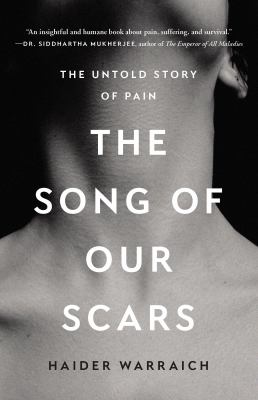
Book
|
The song of our scars : the untold story of pain
Copies
1 Total copies, 1 Copies are in,
0 Copies are out.
Title
The song of our scars : the untold story of pain
Call No
RB127 .W37 2022
Edition
First edition.
Authors
Subjects
Warraich, Haider--Health.
Pain--History.
Pain--Treatment.
Pain--Social aspects.
Chronic pain--Physiological aspects.
Chronic pain--Psychological aspects.
Chronic pain--Patients--United States--Biography.
Chronic Pain
MEDICAL / Pathology.
Chronic pain--Patients
Chronic pain--Psychological aspects
Health
Pain
Pain--Social aspects
Pain--Treatment
United States
Autobiography
autobiographies (literary works)
Autobiographies
Biographies
History
Autobiographies.
Autobiographies.
Pain--History.
Pain--Treatment.
Pain--Social aspects.
Chronic pain--Physiological aspects.
Chronic pain--Psychological aspects.
Chronic pain--Patients--United States--Biography.
Chronic Pain
MEDICAL / Pathology.
Chronic pain--Patients
Chronic pain--Psychological aspects
Health
Pain
Pain--Social aspects
Pain--Treatment
United States
Autobiography
autobiographies (literary works)
Autobiographies
Biographies
History
Autobiographies.
Autobiographies.
Language
English
Published
New York : Basic Books, 2022.
Publication Desc
vii, 307 pages ;
ISBN
9781541675308 hardcover
LCCN
2021038446
Target Audience
Adult
Dimensions
25 cm
MLA
APA
Chicago
0
/
0








